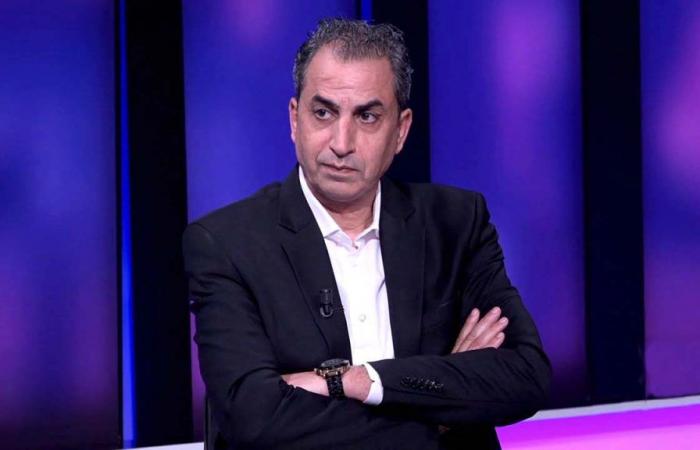In its latest report on the Moroccan economy, the OECD (Organization for Economic Co-operation and Development) points out the insufficiency of certain statistical data essential for national analysis and international comparisons. The HCP, pillar of the national statistical system, disputes this observation. Abdelghani Youmni explores this controversy and analyzes the process of producing statistics in Morocco.
Challenge : Do you understand the OECD’s criticism regarding Morocco’s statistical activities in its report on the situation in the Kingdom?
Abdelghani Youmni: Morocco is no exception to the rule, like several other countries that have been the subject of criticism from the OECD for problems with the quality and reliability of their statistical data, such as Greece, Turkey and Argentina. The High Commission for Planning (HCP) is sometimes criticized for the fact that some of this data comes from other public institutions or ministries, which can lead to gaps in coverage and updating. The proposal to create a truly independent statistical agency therefore makes sense and would be part of the dynamic of the institutional, economic, social and financial reforms that the Kingdom is going through.
However, the OECD’s criticisms of the HCP must be put into perspective. Beyond possible political pressures, Morocco faces challenges such as lack of data in some remote or marginalized regions, as well as potential delays in updating statistics.
That said, the data produced by the HCP is widely considered reliable, thanks to rigorous methodologies, effective use of modern technologies and a strong commitment to transparency.
Read also | Larabi Jaïdi’s recipe for changing the statistical system
Challenge : What is your opinion on the figures published regularly by the High Commission for Planning concerning the Moroccan economy?
OH: The reliability of the statistics collected by the High Commission for Planning (HCP) in Morocco is of crucial importance, both for political decision-makers and for public and private investors, whether national or foreign, as well as for researchers. The HCP is widely recognized for its compliance with strict methodological standards, in line with international standards, such as those of the United Nations, the World Bank or the OECD.
Although HCP data are an essential reference for the analysis of socio-economic dynamics in Morocco, and their reliability is not questioned, they are often based on the synthesis and aggregation of various institutional sources. In addition, additional collection covering the 16 regions of the country and sectoral qualitative and quantitative studies are sometimes insufficient.
In the future, the HCP will need to intensify the regular conduct of national surveys and ensure the continuous updating of its data on essential economic and social indicators (such as unemployment, poverty, or GDP). This approach would further strengthen the relevance and timeliness of statistics, constituting a notable advantage compared to some countries in the region where data publication is more irregular.
Challenge : There is often a notable difference between the HCP’s growth forecasts and those of the government. Do you have an explanation for this situation?
OH: It is true that the differences between the forecasts of the government, Bank Al Maghrib and the HCP are generally marginal. However, differences in growth forecasts between the High Commission for Planning (HCP) and the Moroccan government can be explained by several factors, including distinct methodologies, divergent institutional objectives, and sometimes political dynamics.
The HCP often takes a cautious approach, based on independent and technical analysis, while the government tends to be more optimistic, based on scenarios backed by economic initiatives aimed at stimulating growth.
The HCP seeks to preserve its reputation for objectivity and scientific rigor, minimizing the influence of speculative hypotheses or political initiatives. Conversely, the government, which defends a programmatic line, often has privileged information concerning imminent public or private investment projects, or future policies, which can influence its vision of future growth.
As a result, these two perspectives can create a time lag between the forecasts of the two institutions.
Read also | OECD: the PISA method is not to the taste of the HCP!
Challenge : Some observers say that HCP data, while useful for transparency, also has a political dimension. What do you think?
OH: Compared to many countries in the MENA region, Morocco, through its High Commission for Planning (HCP), has made significant progress in improving the quality and reliability of its statistics. However, challenges remain, particularly in terms of comprehensive regional coverage and public access to data. The idea that HCP data, while essential for transparency, could also have a political dimension is not unfounded, but it deserves to be qualified.
Even if the published statistics and studies are accessible to an informed public, it is undeniable that the publication choices, the dissemination schedule, or even the interpretation of the data can sometimes be influenced by the political context.
As is the case in other countries, certain data can indeed take on a political dimension, because they are often exploited by various actors (political parties, media, researchers, etc.) to support or challenge government decisions. This highlights the fine line that separates political time from statistical time.
From then on, the whole game consists of the figures published by the HCP often finding themselves at the heart of political debates. The government may take credit for positive outcomes (such as an increase in GDP), while the opposition will highlight less favorable indicators (such as increased unemployment or inflation). In this framework, data can become instruments of political debate, although their production remains fundamentally objective and technically reliable.
Challenge : What solution do you recommend to avoid controversies over statistics in Morocco?
OH: The controversies surrounding statistics in Morocco are a sign of the vitality of the democratic debate and contribute to the dynamics of reforms and modernization of the country. As everywhere else, statistics are subject to interpretation and comment, whether by majorities or oppositions.
However, it is essential to build confidence in the production and use of data. The creation of an independent national statistics agency would make it possible to dissociate the production, modeling and analysis of data from the influences and pressures exerted by political or economic actors. It would also be important to launch initiatives to collect data more frequently and cover more territories.
In addition, the provision of public databases (open data) would facilitate access for the media and researchers, allowing them to carry out their own analyzes and thus contributing to a better democratization of use, understanding and the interpretation of statistical data. The integration of new technological tools such as digital surveys, mobile data collection systems, could improve the accuracy of statistics, especially in hard-to-reach areas.
Bio express
Abdelghani Youmni has a doctorate in economics and public management, graduated from Sophia Antipolis University in Nice. Associate professor, he directed the Franco-Moroccan Branch of Sciences Po Bordeaux in Morocco and teaches in the Pan-African MBA of Honoris United Universities which combines Mundiapolin University with the Regent Business School in South Africa.
He is also seconded to the Agency for French Education Abroad and a member of the French society for the evaluation of public policies. Consultant, author of numerous studies and publications on Africa and the countries of the southern Mediterranean, he is a visiting professor at Hassan II University and in several foreign universities.






